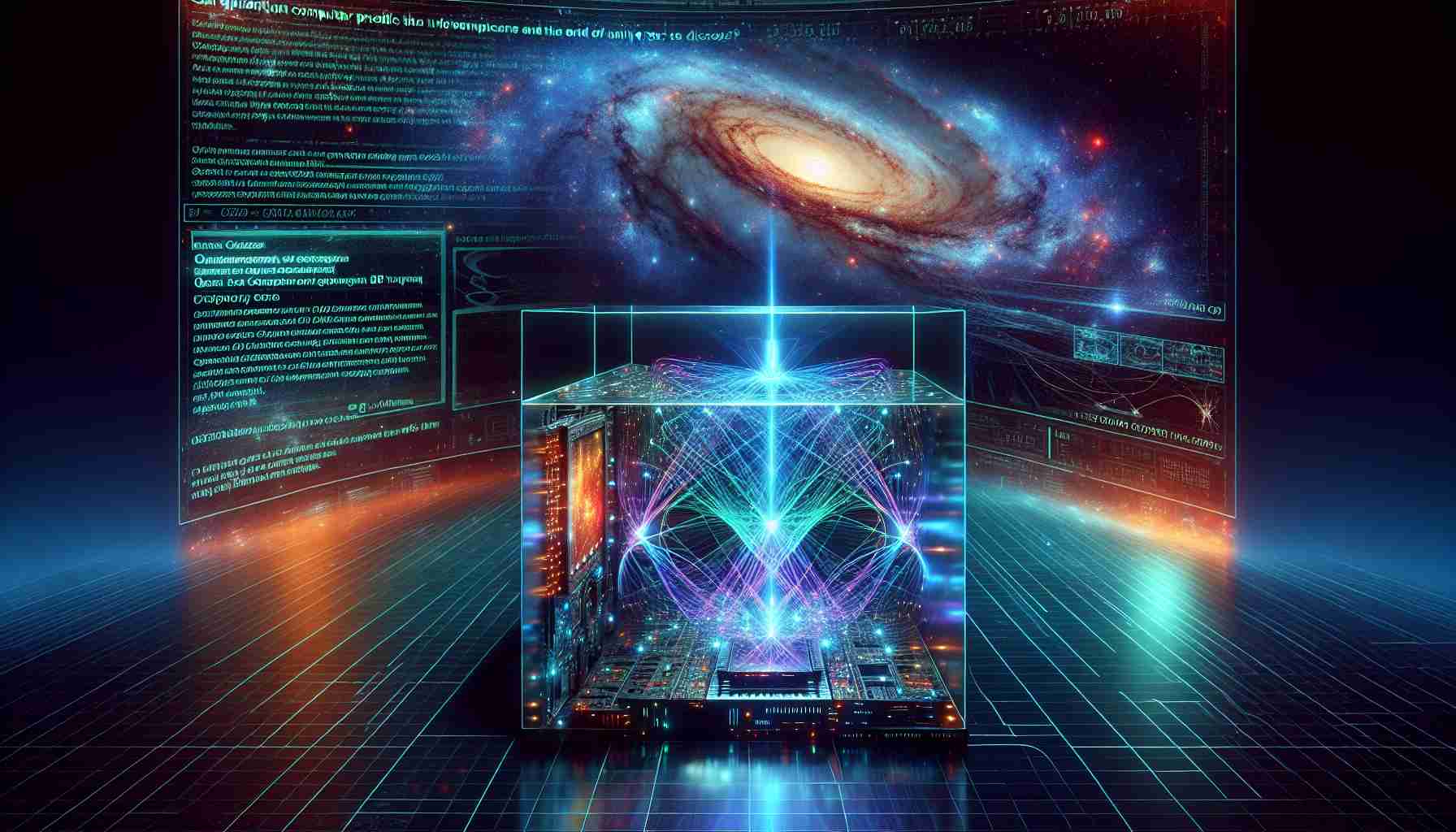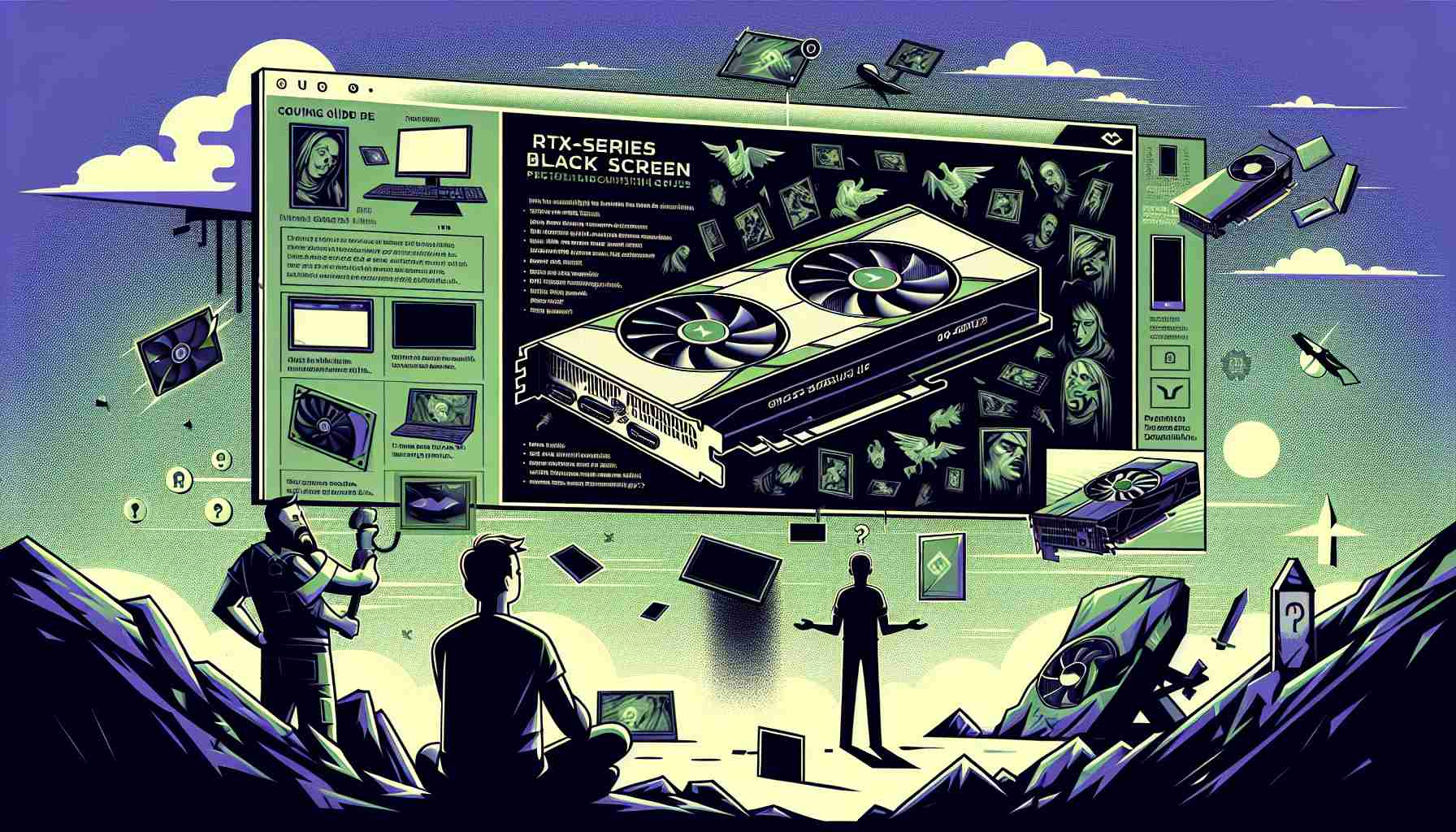- Quantum computers represent a significant frontier in technological advancement, with the potential to explore complex scientific theories.
- The study led by Professor Zlatko Papic investigates the decay of a false vacuum, a phenomenon with implications for the universe’s stability.
- This research utilizes a 5,564-qubit quantum annealer, demonstrating the power of quantum simulations in addressing critical cosmic questions.
- Results reveal that vacuum decay is complex, involving various interacting bubble sizes rather than a simple process.
- The research opens opportunities for exploring higher dimensions, sparking interest in solving longstanding scientific mysteries.
- Quantum computing has the potential to deepen our understanding of the universe and potentially redefine fundamental physics.
Imagine a machine so powerful that it can peer into the very fabric of reality, probing the mysteries of our universe and even predicting its downfall! Welcome to the world of quantum computers – incredible devices that could change everything we know about science, but are still in their developmental infancy.
Researchers led by Professor Zlatko Papic at the University of Leeds have utilized a 5,564-qubit quantum annealer to simulate a mind-boggling scenario: the decay of a false vacuum, a hypothetical event that could lead to the end of our universe. Picture this – if the universe’s Higgs field isn’t in its most stable state, it could collapse into a true vacuum state, creating a cosmic bubble that swallows everything in its path and altering the very nature of existence as we know it.
Using visual metaphors, Professor Papic explained how vacuum decay resembles the dramatic transformation of supercooled water: it remains liquid until disturbed, triggering an explosive change. The study revealed that this cosmic decay isn’t as straightforward as scientists previously thought – it involves bubbles of various sizes that interact in complex ways, painting a more intricate picture of potential cosmic doom.
As they push the boundaries of quantum technology, the research team is set to explore higher dimensions, stirring the excitement of possibly solving age-old enigma.
This groundbreaking work emphasizes a key takeaway: quantum computers may not just solve mathematical riddles, but might also unlock profound secrets about the universe’s existence and its ultimate fate. The future of physics is here, and it could redefine our understanding of everything!
Unlocking the Universe: How Quantum Computing is Decoding Cosmic Mysteries
The Quantum Leap in Understanding Cosmic Decay
Recent advancements in quantum computing have opened new doors to understanding complex phenomena such as the potential decay of the universe through vacuum fluctuations. Research led by Professor Zlatko Papic at the University of Leeds showcases the capabilities of a 5,564-qubit quantum annealer, which significantly enhances our ability to probe intricate scientific questions that were previously unattainable with classical computers.
Key Innovations and Features
– Quantum Annealers: This technology allows for the simulation of highly complex quantum states, enabling researchers to explore scenarios like false vacuum decay, which involves a transition from a false vacuum to a true vacuum, potentially resulting in cosmic ramifications.
– Complex Interactions: Researchers discovered that vacuum decay is not linear; it includes a variety of bubble sizes that interact in complicated ways, indicating that previous models may have oversimplified this critical process.
– Higher-Dimension Exploration: The team’s forthcoming work includes delving into higher-dimensional theories, which could provide deeper insights into fundamental physics and possibly lead to breakthroughs in our understanding of the universe.
Use Cases and Market Trends
1. Scientific Research: Quantum computers can model phenomena that are too complex for classical systems, allowing for considerable advancements in theoretical physics.
2. Sustainability: Understanding cosmic events could inform technologies aimed at optimizing energy usage or examining fundamental energy sources.
3. Security: Quantum technology can enhance encryption methods due to its inherently complex computations, thereby improving data security protocols.
Limitations and Challenges
While quantum computing holds immense promise, it still faces significant challenges:
– Scalability: Building larger quantum computers with more qubits remains a technical hurdle.
– Error Rates: Quantum systems are susceptible to noise and errors, complicating calculations.
– Resource Intensity: The energy consumption and costs associated with quantum computers can be high, potentially limiting widespread adoption.
Pricing Insights and Market Forecast
The cost of quantum computing technology varies widely based on capabilities, with some systems costing millions of dollars. As this technology matures, market projections suggest a gradual reduction in prices and increased accessibility for academic and commercial institutions.
Predictions for Future Research
Experts predict that as quantum technologies evolve, they will not only solve abstract mathematical problems but also foster a new era of discovery in understanding the universe. This includes tackling profound questions about dark matter and gravity, possibly redefining foundational physics principles.
Important Questions Answered
1. What is vacuum decay?
Vacuum decay refers to a theoretical process where the universe transitions from a false vacuum state to a true vacuum state, which could result in catastrophic cosmic events.
2. How does quantum computing enhance research capabilities?
Quantum computing allows for the simulation of complex quantum phenomena, offering unprecedented insights into theoretical physics that classical computers cannot provide.
3. What are the future implications of quantum computing in physics?
The continued development of quantum computing is expected to revolutionize our understanding of fundamental physics and address longstanding mysteries about the universe.
For more in-depth insights on quantum computing advancements, visit Leeds University.
The source of the article is from the blog mendozaextremo.com.ar













